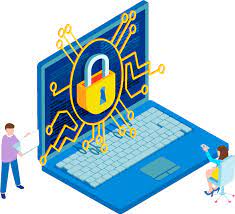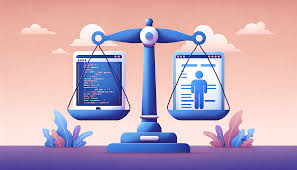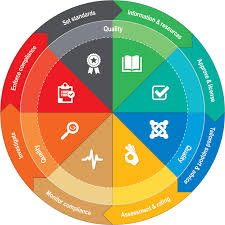9th Computer Science Chapter 6 Computer Security and Ethics
Computer Security and Ethics
9th Computer Science Chapter 6 Computer Security and Ethics curriculum delves into the crucial concepts of computer security and ethics, exploring the fundamental principles, techniques, and ethical considerations in the realm of information technology. This chapter aims to equip students with the knowledge and awareness necessary to navigate the digital landscape responsibly and ethically.

Key Topics Covered:
Introduction to Computer Security:
Students will learn the importance of computer security in safeguarding digital assets, including personal information, financial data, and intellectual property. They will understand the potential threats posed by malicious software, unauthorized access, and other cyberattacks.
Cybersecurity Measures:
The 9th Computer Science Chapter 6 Computer Security and Ethics will introduce various cybersecurity measures and techniques employed to protect computer systems and networks. This includes antivirus software, firewalls, encryption, and secure authentication methods like passwords and biometrics.

Data Privacy and Protection:
Students will explore the concepts of data privacy and protection, understanding the significance of regulations such as GDPR (General Data Protection Regulation) and HIPAA (Health Insurance Portability and Accountability Act) in safeguarding individuals’ personal information.
Ethical Considerations in Computing:
This section will delve into the ethical implications of computing, addressing topics such as intellectual property rights, plagiarism, digital piracy, and responsible use of technology. Students will examine case studies and real-world examples to understand the ethical dilemmas faced by IT professionals and users alike.

Social Impacts of Technology:
The chapter will also explore the social impacts of technology, including issues related to online privacy, cybersecurity threats, digital divide, and the ethical use of emerging technologies such as artificial intelligence (AI) and biotechnology.
Legal and Regulatory Frameworks:
Students will gain insight into the legal and regulatory frameworks governing computer security and ethics, including relevant laws such as the Computer Fraud and Abuse Act (CFAA), the Digital Millennium Copyright Act (DMCA), and international agreements on cybersecurity.

Learning Objectives:
- Understand the importance of computer security in protecting digital assets.
- Identify common cybersecurity threats and the measures to mitigate them.
- Appreciate the ethical considerations in computing and information technology.
- Analyze the social impacts of technology on individuals and society.
- Comprehend the legal and regulatory frameworks governing computer security and ethics.
Activities and Assessments:
- Case studies on cybersecurity breaches and ethical dilemmas in computing.
- Group discussions on ethical scenarios related to data privacy, intellectual property, and responsible technology use.
- Role-playing exercises to explore the perspectives of various stakeholders in cybersecurity and ethics.
- Research projects on legal and regulatory frameworks concerning computer security and ethics, with presentations or reports summarizing findings.
Conclusion:
By the end of this 9th Computer Science Chapter 6 Computer Security and Ethics, students will develop a comprehensive understanding of computer security principles, ethical considerations in computing, and the broader societal implications of technology. They will be equipped with the knowledge and critical thinking skills necessary to navigate the digital world responsibly and ethically, both as consumers and future professionals in the field of information technology.

